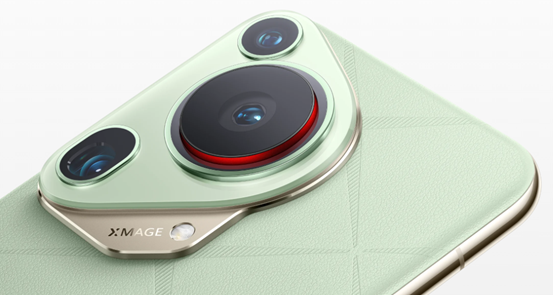In
today's interconnected world, smartphones have become an integral part of our
daily lives. From communication and entertainment to productivity and shopping,
these pocket-sized devices serve as our gateway to the digital realm. However,
as we immerse ourselves in the convenience of smartphone technology, it's
crucial to address the paramount importance of privacy and security.

Safeguarding Your Digital Footprint
The Evolving Landscape of Smartphone Security
Smartphone
manufacturers continuously strive to enhance the security features of their
devices to protect users' personal data from potential threats. From biometric
authentication methods like fingerprint sensors and facial recognition to
robust encryption protocols, modern smartphones offer a myriad of tools to
safeguard sensitive information.
Data Privacy Concerns in the Digital Age
Despite
these advancements, concerns surrounding data privacy persist in the digital
age. Mobile apps often collect vast amounts of user data, ranging from location
information and browsing history to contact lists and personal preferences. The
monetization of this data by tech companies raises questions about user
consent, transparency, and the ethical use of personal information.
Encryption: Fortifying the Digital Fortress
Encryption
serves as a critical defense mechanism in the battle to protect sensitive data
on smartphones. End-to-end encryption protocols ensure that only authorized
parties can access the contents of communications, whether it's text messages,
emails, or voice calls. This cryptographic technique plays a pivotal role in
preserving the confidentiality and integrity of information exchanged over
mobile networks.
Balancing Convenience with Personal Information
Protection
In
the quest for convenience, users often grant permissions to apps without fully
comprehending the implications of sharing their personal data. While granting
access to location services, camera, or microphone may enhance the
functionality of apps, it also exposes users to potential privacy risks.
Striking a balance between convenience and personal information protection
requires careful consideration of the permissions granted to apps and regular
privacy audits.
Mitigating Risks: Best Practices for Smartphone
Security
To
mitigate the risks associated with smartphone security and data privacy, users
can adopt several best practices. Regularly updating device software ensures
that security patches are applied promptly, reducing the likelihood of
vulnerabilities being exploited by malicious actors. Additionally, practicing
good password hygiene, enabling two-factor authentication, and exercising
caution when downloading apps from third-party sources can bolster smartphone
security.
User Empowerment through Privacy Settings
Smartphones
such as huawei pura 70 ultra operating systems provide users with granular control over
their privacy settings, allowing them to customize their level of data sharing
and app permissions. By navigating through privacy settings menus, users can
revoke unnecessary permissions, limit ad tracking, and manage which apps have
access to sensitive information. Empowering users with these tools enables them
to take proactive measures to safeguard their digital privacy.

The Role of Regulatory Frameworks in Protecting
Consumer Privacy
Governments
and regulatory bodies play a crucial role in shaping the landscape of consumer
privacy protection. Legislation such as the General Data Protection Regulation
(GDPR) in the European Union and the California Consumer Privacy Act (CCPA) in
the United States imposes stringent requirements on companies regarding data
collection, processing, and user consent. These regulatory frameworks serve to
hold organizations accountable for the responsible handling of user data.
Conclusion: Navigating the Intersection of Convenience
and Privacy
As
smartphones continue to evolve and integrate deeper into our lives, the
intersection of convenience and privacy becomes increasingly complex. By
prioritizing smartphone security, understanding data privacy risks, and
leveraging encryption technologies, users can navigate the digital landscape
with greater confidence. Ultimately, the pursuit of convenience should not come
at the expense of compromising personal information protection. Through
awareness, empowerment, and collective action, we can foster a safer and more
privacy-respecting smartphone ecosystem for all users.



